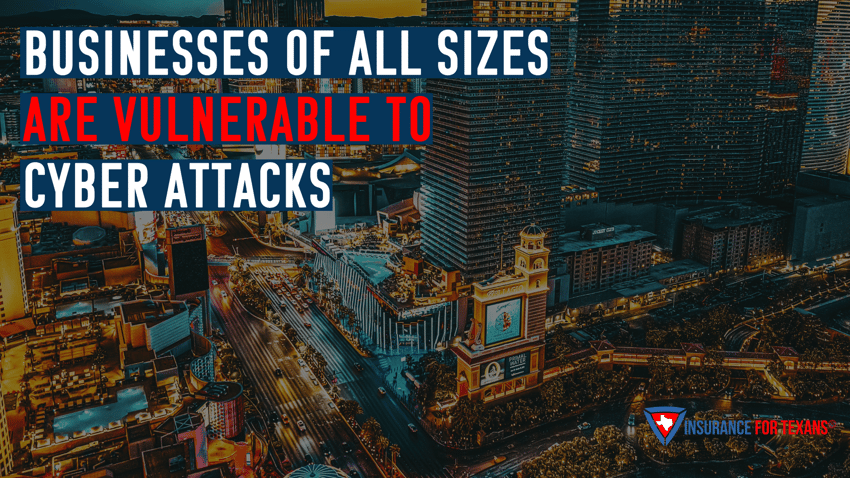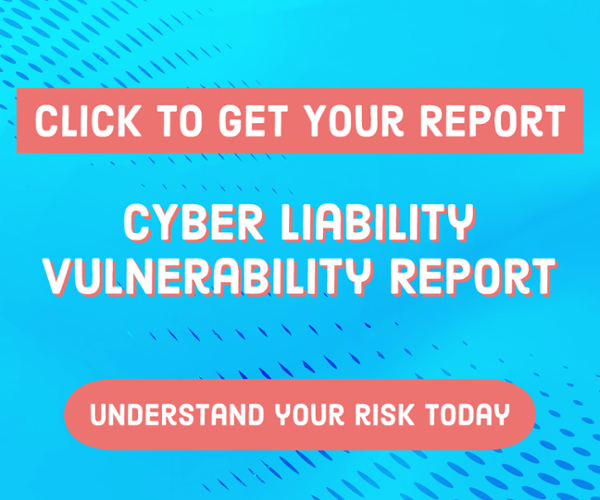Las Vegas is the alluring vixen that draws us in with her promise of fame and fortune. There is a belief that we can leave Las Vegas with the casino's money in our pocket after eating the fat from the land. And while that never happens to me personally, it looks like cyber criminals are finding better luck than I do at a craps table. The latest attack on MGM and Caesars Entertainment has proven that cybersecurity issues can hit even the places that are largely considered to be the gold standard of cybersecurity experts.
Our business landscape has evolved into an interconnected web of data and information, some of it highly personal and incredibly profitable to criminals. When we get lost on the floor of the casino giants, we never expect our information to potentially be available to these criminals like a pull on a slot machine. But as the social engineering attacks become more sophisticated, it's important for the cybersecurity firms to improve their cybersecurity programs and testing. Let's look at how your business can avoid a massive attack like the one on a Las Vegas mega-corporation that crippled their infrastructure for a prolonged period and cost them millions of dollars per day.
The MGM Cyber Attack: A Stark Reminder Of Vulernability
The MGM Cyber Attack serves as a stark reminder of the vulnerability of businesses today. MGM Resorts International, one of the largest casino owners and resort chains in the United States, was targeted in this cyber assault. Hackers exploited a vulnerability in a domain controller hash, gaining access to critical systems, including resort functions, and data. The breach exposed the personal information of millions of customers, including sensitive data like names, social security numbers, and postal addresses. The financial ramifications of this event have been astronomical, costing the company over $8 million a day during the recovery process. Add to this the expenses associated with notifying affected clientele and potential legal consequences, and it's clear that MGM is facing a substantial loss from this incident.
The MGM Cyber Attack is a stark reminder that cybercriminals will not discriminate based on the size or industry of an organization. In an era where data is a valuable currency, every business is a potential target. To combat these persistent threats, companies must invest in robust cybersecurity measures, including the purchase of cyber liability insurance.

Understanding the Threat Landscape
In the digital realm, businesses can face a variety of threat actors, each with their own motivations and methods. These actors encompass cybercriminals, organized crime groups, nation-state actors, insider threats, and hacktivists.
- Cybercriminals: Driven by financial gains, cybercriminals employ techniques like social engineering and ransomware attacks to exploit vulnerabilities in an organization's cybersecurity defenses. Their aim is to steal sensitive data for resale or fraudulent activities.
- Organized Crime Groups: These groups seek financial gains on a larger scale. They may target businesses in industries like entertainment and gaming due to their potentially lucrative systems and databases. Advanced hacking techniques and persistent targeting of vulnerabilities are hallmarks of organized crime groups.
- Nation-State Actors: Backed by governments, nation-state actors have political or economic motivations. They can gather intelligence or disrupt critical infrastructure. Their technical capabilities are substantial, allowing them to target any business deemed a threat or of strategic importance.
- Insider Threats: These threats originate from within an organization, whether intentional or unintentional. Employees, contractors, or partners with access to sensitive information may inadvertently leak data or intentionally manipulate systems.
- Hacktivists: Motivated by social or political causes, hacktivists target businesses to expose perceived wrongdoings or advance their ideologies. They employ social engineering and security gap exploitation to gain unauthorized access and disrupt operations.
Understanding these threat actors and their motivations will help businesses of all sizes to realize the various threats and develop robust cybersecurity strategies and protect their valuable assets.
Identifying Security Gaps: Where Vulnerabilities Lurk
Cyber Security Gaps and vulnerable online operations provide ample opportunities for cybercriminals to exploit weaknesses and gain unauthorized access to valuable information. Common threats to vulnerable systems include outdated software, lack of employee training, weak passwords, and unpatched systems.
- Outdated Software: Aging software often lacks the latest security patches and updates, making businesses vulnerable to known vulnerabilities. What you see as stable systems for your employees can be critical cybersecurity weaknesses to be exploited by a ransomware gang.
- Lack of Employee Training: Insufficient cybersecurity training for employees increases the risk of falling victim to social engineering techniques and exposes sensitive information. Network access is the key to the kingdom of your data. Make sure that your employees understand this and protect it.
- Weak Passwords: Weak or easily guessable passwords provide a straightforward entry point for cybercriminals seeking unauthorized access to systems. Your corporate network must be protected like a dealer at a blackjack table does his shoe.
- Unpatched Systems: Neglecting to update systems with the latest security fixes leaves businesses susceptible to cyber threats. One of the simplest things a network engineer can do to protect your system is to keep security measures up to date. Don't wind up news outlets due to laziness.
To mitigate these risks, regular security audits are essential. Identifying and addressing security gaps and vulnerabilities can shield businesses from potential cybersecurity attacks. Additionally, implementing robust cybersecurity measures, such as strong passwords, multi-factor authentication, timely software updates, and comprehensive employee training, significantly reduces the likelihood of successful cyber attacks.
The Impact of Data Breaches & Financial Losses
Recent events, like the MGM Cyber Attack, underscore the magnitude of potential financial losses resulting from cyber attacks. Data breaches can have far-reaching consequences, including:
- Investigation and Remediation Costs: The expenses related to investigating and mitigating the breach can be substantial.
- Customer Notification: Offering credit monitoring services and notifying affected customers is an essential but costly step in managing a data breach.
- Legal Settlements: Businesses may face legal liabilities, including defending against lawsuits filed by customers or third parties affected by the breach.
- Reputation Damage: Cyber attacks can tarnish a company's reputation, leading to a decline in customer loyalty and revenue.
- Regulatory Fines: Regulatory bodies may impose fines on businesses with inadequate cybersecurity measures in place.
Preventing Financial Losses from Cyber Attacks
Businesses can take several proactive steps to prevent financial losses resulting from cyber attacks:
- Implement a Comprehensive Cybersecurity Plan: Start by conducting a thorough risk assessment to identify critical assets, threats, and vulnerabilities. Implement security controls like firewalls, intrusion detection systems, data encryption, and access control policies. Prioritize employee cybersecurity training.
- Monitor Systems and Networks: Utilize tools like security information and event management (SIEM) systems to monitor systems and networks for suspicious activity.
- Enforce Two-Factor Authentication: Require strong passwords and enable multi-factor authentication to add an extra layer of security to accounts.
- Keep Software Up to Date: Promptly install software updates and security patches to protect against known vulnerabilities.
- Develop an Incident Response Plan: Prepare for the worst by establishing an incident response team, a communication plan, and a recovery plan.
- Consider Cyber Liability Insurance: To further safeguard your business, consider the purchase of cyber liability insurance. This insurance can cover various costs, including data breach response, legal defense and settlements, and business interruption losses.
Don't Be the Next Victim
The MGM Cyber Attack serves as a wake-up call for businesses of all sizes. The perceived image of casino invulnerability is gone and no organization is immune to cyber threats. By recognizing the risks, understanding threat actors and motivations, and implementing comprehensive cybersecurity measures, businesses can protect their assets and reputation. Additionally, you must carry cyber liability insurance as a prudent step to mitigate the financial impact of cyber attacks. Having financial protection for the follow-up measures if a social engineering tactic hits your business can make the difference between losing your business or thriving after it's been repaired.
If you want protection that is more predictable than winning at a slot machine, let Insurance For Texans help you coordinate a cyber liability insurance policy today. Call us at 469.789.0220 or click the button below to gain the coverage you vitally need.



